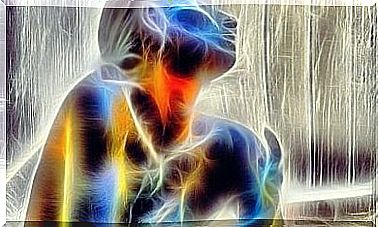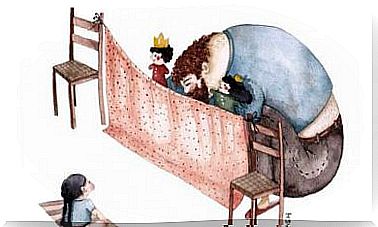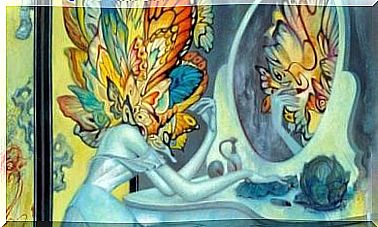When You Don’t Feel Anything During Depression

According to the Trimbos Institute, more than 20% of all adults will experience clinical depression at some point. Some experience a mixture of sadness, anger and defeat. Others feel an absolute emptiness and an absence of emotions. Sometimes emotions and emptiness even alternate. Depression can feel like you have a lead block in your body and impenetrable mist in your head. During a depression it feels like reality has faded and we ourselves are hanging loosely in the air, floating in the middle of nowhere.
Philip Lopate, a well-known North American essayist and writer, described this feeling in his overwhelming poem called ‘ Numbness ‘ (‘Numbness’). This poem tries to draw out the feeling, the experience of a total emotional emptiness. In this poem, Lopate describes depression as a walk through a field of ice. Depression makes you indifferent and cools your heart until it’s a block of ice. Lopate leaves us with the image of an anorexic illusion in which we are cut off from the rest of the world.
What we need to understand is that few diseases are as complex and diverse as depression. Some people who suffer from this show obvious symptoms, while others carry their symptoms silently and invisibly for years or months. It affects all kinds of things. Just think of sleep, concentration, memory, motor skills and even how we deal with language.
We don’t often talk about clinical depression. We’re not always talking about the kind of patient who doesn’t feel anything at all. Instead of emotions, such a patient experiences a wall that completely isolates them from the rest of the world and from themselves.

What can you do if you don’t feel anything during a depression?
One reason you may not feel anything during depression is that you previously faced a situation where you experienced the opposite. This situation was so incredibly emotionally intense that you didn’t know how to handle it. This is sometimes referred to (informally) within psychology as an ’emotional hangover’. An emotional hangover is the result of an experience that makes your emotions unmanageable. In addition, sometimes other disorders remain after a depression, such as anxiety disorders or unprocessed trauma.
Speaking of depression, we also want to mention a common thought about it. Some still see the word “depression” as interchangeable with “sadness.” However, many patients deal with different layers of emotions. Depression is not just sadness. It often also consists of pessimism, anger and depression. It makes a person feel unstable and can lead to emotional neutrality. This, in turn, can result in physical problems. This often involves headaches (up to migraines), muscle pain and digestive problems.
Patients who fit this description may also suffer from hypersomnia. People with hypersomnia suffer from excessive fatigue, even if they have slept well. They often nap during the day and can sleep for a total of 10 to 15 hours a day (without feeling rested afterwards). However, the degrees of this vary from falling asleep after a meal to, for example, falling asleep in the middle of a conversation. In their fatigue, they often also feel unable to laugh or cry. It doesn’t just feel like their body has forgotten how to do this. It feels like they have lost the whole meaning of these emotional gestures.
Let’s talk about these devastating symptoms and the explanations behind them.
Suppressed Emotions
Many of us have been taught from an early age that we should hide anything that hurts, bothers or worries us. This is one reason why you may not feel anything during depression. This often occurs when, for example, you are dealing with a complex family problem or a stressful work environment.
These situations create a great deal of agitation, which can become chronic until the sufferer goes into depression. We can get used to this feeling over the months or years without realizing it. We forget how to express our worries, fears, or regrets, after which we gradually become numb. A similar phenomenon causes the well-known mental fog where we react slowly to our environment. Our attention span is reduced, as are our ability to concentrate and memory.
Trauma from the past
When we read the beginning of Philip Lopate’s poem about the callousness of his depression, we come across a revealing detail. In this section, Lopate talks about how his father called him a “cold fish” from the age of nine. He eventually began to see himself that way. His father made fun of his shy behavior and appearance. As a result, Lopate eventually began to see himself that way.
Complex past or unresolved trauma can cause this condition of emotional numbness. We see this very often when we look at people with depression.
What therapeutic strategies can be employed during depression of this kind?
Our brain is an amazing organ. In addition to being wonderfully sophisticated, it is incredibly complex because it ensures our evolutionary success. This complexity makes it so difficult to solve brain-related problems such as depression.
We must first understand that it is not true that brains are like computers, no matter how many times others say it. We are not machines. In fact, emotions rule our brain. There is only one way we can get out of the Depression prison. It starts with understanding the processes mentioned above, how we can deal with them and how we can bend them to our will.

Psychologists recommend starting sentences with “I feel” — especially when we feel like we don’t feel anything. In this way you encourage yourself to look deep within yourself. This is how you discover the many emotional layers that we possess, which ultimately allow us to get to the root of the problem. We need to explore our unresolved traumas so that we can heal from them and move on with our lives. Cognitive behavioral therapy is very helpful with this.
The moment we let go of our anger, fears and worries is the moment that our journey to recovery begins.









